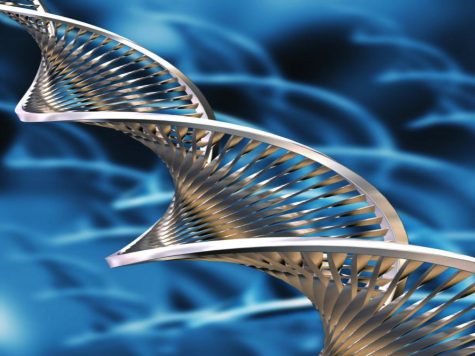Family and Fault
Family and Fault
An Analysis of Relationships Throughout Frankenstein by Mary Shelley
People say you don’t know what you’ve got until it’s gone. The truth is, you knew what you had, you just never thought you’d lose it.
–Anonymous
In the novel Frankenstein, by Mary Shelley, the main character, Victor Frankenstein, has essential relationships with family and friends which, throughout the story, change immensely. These altered connections are a product of Shelley’s chimerical imagination producing several events, the most significant being the deaths of Frankenstein’s close friend and two family members. Such relationships begin with strength and harmony, but Frankenstein’s project, a Wretch, causes absence from home and creates weakened connections. As his hobby is completed, the Wretch escapes, inflicting continuous pain and death on those Frankenstein loves. At last, Frankenstein falls into deep sorrow and regret for the misfortunes he faces.
Family and friends are paramount to Frankenstein, providing him with support and trust. As Frankenstein describes his relationship with Elizabeth, a friend and relative, he defines “harmony as the soul of [their] companionship, and the diversity and contrast that subsisted in [their] character drew [them] nearer together” (II). Frankenstein and Elizabeth’s connection is bound together with values of reliance and stagnance. Frankenstein’s admiration for Elizabeth remains consistent throughout the novel despite future obstacles and difficulties. Frankenstein is alone and sees his close friend, Clerval, whose “presence brought back to [Frankenstein’s] thoughts [his] father, Elizabeth, those scenes of home so dear to [his] recollection” and “calm and serene joy” (V). Clerval is Frankenstein’s most cherished companion, as they grow closer together through travel and the exploration of similar interests. Clerval’s presence brings joy as strong as the ardor he gains from his family. Frankenstein considers those he loves, as they are “dear not only through habit and association, but from their own merits” (XXIV). Frankenstein’s strongest relationships are held together with pureness and authenticity rather than titles and falsity. An example of this genuine relationship is the equal reliability that Frankenstein has between Elizabeth and Clerval. Elizabeth shares love and care with Frankenstein, while Clerval provides him with affability.
Frankenstein, a scientist, is involved in an ongoing project initially sparked by curiosity but results in insuperable fear and death. Frankenstein’s wretched creation is his only project, taking place far from home and slowly converting into an excuse not to visit family. Time passes and trips home to Frankenstein’s family are continuously delayed which causes him to forget “those friends who [are] so many miles absent, and whom [he] had not seen for so long a time” (IV). The agony and loneliness Frankenstein feels only kick in when his absence has been extended for too long. More time proceeds from home and Frankenstein builds stronger beliefs that “if the study to which you apply yourself has a tendency to weaken your affections, and to destroy your taste for those simple pleasures in which no alloy can possibly mix, then that study is certainly unlawful” (IV). Frankenstein understands that putting science before family is unbeneficial and harmful to himself and others. In order to maintain his relationships, Frankenstein needs to prioritize family as it had been before. Frankenstein’s work transforms from a passion to an uncouth burden; he had “worked hard for nearly two years, for the sole purpose of infusing life into an inanimate body. For this [he] had deprived [himself] of rest and health” and “the beauty of the dream vanished, and breathless horror and disgust filled [his] heart” (V). The hatred now occupying Frankenstein is targeted at his creation and himself for his long abandonment of family and loved ones. Frankenstein’s absence and pursuit of his project spark the fragmentation of his once-cherished relationships.
As a result of Frankenstein’s creation, family members and friends dear to Frankenstein all become possible victims of the Wretch’s revenge. Frankenstein falls asleep as the end of the day approaches, but is disturbed by a foreboding dream in which he sees Elizabeth and embraces “her, but as [he imprints] the first kiss on her lips, they [become] livid with the hue of death; her features [appear] to change, and [he thinks] that [he holds] the corpse of [his] dead mother” (V). In the reality outside of his unsettling dream, Frankenstein’s mother previously passed in Geneva, but Elizabeth is alive and well, casting Frankenstein’s paroxysm as a foreshadowing of Elizabeth’s death which, as the dream displays, is in the hands of Frankenstein himself. As his repining vision predicts, Elizabeth is dead, strangled by Frankenstein’s own creation, and “the whole truth rushed into [his] mind, [his] arms dropped, the motion of every muscle and fibre was suspended” … “Alas! life is obstinate, and clings closest where it is most hated” (XXIII). Frankenstein’s nightmare emphasizes the death of another loved family member as an outcome of Frankenstein’s experiment. Prior to Elizabeth’s death, William, another relative of Frankenstein, is murdered by the Wretch, and later on Clerval, Frankenstein’s dearest friend. A pattern emerges in which those close to Frankenstein are murdered as a result of Frankenstein and his project, tossing him into a deep spiral of sorrow.
The many misfortunes and debacles Frankenstein faces lead him to feel hopeless and dismal, destroying cherished relationships. Following the death of his relative William, Frankenstein believes that not even “the tenderness of friendship, nor the beauty of earth, nor of heaven, could redeem [his] soul from woe: the very accents of love were ineffectual” (IX). Frankenstein, knowing the death of William is his doing, feels a deep and exalting sadness unhealable by any love. Frankenstein’s life moves on, but once again guilt and despair fill him as he is “absorbed by a gloomy and black melancholy, that nothing could dissipate” and “soon, will death extinguish these throbbings, and relieve [him] from the mighty weight of anguish that bears [him] to the dust” (XXI). Frankenstein knows his culpabilities and wrongdoings but believes he deserves something worse than death. The wish of dark demise is “ever present to [his] thoughts; and [he] often sat for hours motionless and speechless, wishing for some mighty revolution that might bury [Frankenstein] and [his] destroyer in its ruins” (XXI). Not only does Frankenstein despise the Wretch he created, but has an abhorrence for himself and wishes for his death. After facing feelings of hopelessness, Frankenstein concludes “to quit Geneva forever; [his] country, which, when [he] was happy and beloved, was dear to [him], now, in [his] adversity, became hateful” (XXIII). What was once a subliminal and accustomed place of family to Frankenstein is now a place of loss and indignation, causing Frankenstein to lack repose. Frankenstein’s resentfully burgeoning life is forming around the losses he initiates, as they affect what is left between himself and those he loves. Frankenstein digs himself into a hole, continuously becoming more and more difficult to escape as it grows deeper. Frankenstein inflicts long-term and possibly irreversible despair upon himself.
In the novel Frankenstein, by Mary Shelley, the main character, Victor Frankenstein, crafts close bonds with his friends and family which, throughout the novel, are highly affected. Frankenstein’s infliction of the many inadvertent harms on those he is close to is represented throughout the novel. Frankenstein’s healthy relationships become distanced, causing unintentional harm and resulting in Frankenstein’s bleakness. Largely throughout life connections are formed, weak or strong, that may not appear to be imperative; but within these relationships comes the realization that only when it is gone is its value recognized.






